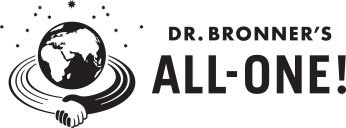Want Organic? It’s All in the Label
Dr. Bronner’s Explains What Is ‘Certified Organic’ And How You Can Tell You’re Getting The Real Deal
May 10, 2012
Natural beauty and personal care products are booming like never before and it seems like everyone wants to jump on the organic bandwagon. While this is great news for those who want to cut down on the amount of chemicals they’re exposed to; it can be a minefield trying to sort the genuine organic products from the ‘green-wash’.
When buying organic most consumers would assume that the raw materials used are safe for humans, non-damaging to the environment and produced using sustainable production methods. The term ‘organic’ also implies the absence of artificial preservatives and fragrances, as well as the reduction of chemical additives. However, the use of the word ‘organic’ on beauty and personal care products is neither legally defined nor protected in Australia.
Michael Bronner, Vice President of Dr. Bronner’s, is very critical of this issue. “While there are strict standards for the labeling of organic food products, the organic personal care industry remains unregulated. This encourages a fraudulent business culture”, he says.
His frustration is justified. Quite often, so-called ‘organic’ beauty products actually use only ‘nature-based’ ingredients or natural colours. In fact, some products use the term ‘organic’ or ‘natural’ even if just 1% of their ingredients fall into either of these categories. Furthermore, packaging depicting plants or cute bunnies can mislead consumers about the ‘naturalness’ of its contents.
So, given all this ‘green-washing’ confusion – how can consumers be certain their organic-labelled product is indeed sustainable, safe and being produced under eco-friendly conditions? “Look for reputable organic certifications on the packaging,” suggests Michael Bronner, “they are the only way to ensure full transparency and high quality standards,” he says.
Since currently there are no Australian government regulations for making organic claims on cosmetics and personal care products, checking the labels for these certifications is the best way to be safe when shopping. Whilst there are many certification standards for personal care products, USDA Organic and Australian Certified Organic are two of the most reputable and stringent.
The US Department of Agriculture (USDA) awards its seals according to criteria the ingredients must adhere to: The “100% Organic” seal describes 100% organic ingredients from certified organic farming. The “Organic” seal can be used if 95% or more of the ingredients are certified organic from certified organic farming. The “Made with Organic Ingredients” label requires at least 70% certified organic ingredients from certified organic farming. Preservatives are not allowed in the “100% Organic” certification. www.usda.gov
Australian Certified Organic cosmetics and skincare products contain more than 95% certified organic ingredients. The remaining small percentage (maximum 5%) of non-organic ingredients must be naturally produced plant products and/or natural, non toxic preservatives/additives.
Dr. Bronner’s Soaps are synonymous with high quality, authenticity and transparency. The company’s pure castile soaps and body care products are based on a combination of organic extra virgin coconut, olive, jojoba and hemp oils, together with pure essential oils. There are no synthetic foaming agents, thickeners or preservatives used in the production process. The 100% post-consumer recycled cylinder bottles and paper labels complete Dr. Bronner’s organic and eco-friendly production methods.
Here are Michael Bronner’s top five tips on what to look out for when buying organic personal care products:
- An organic certification seal
Not all certification is the same so look for a reputable seal such as Australian Certified Organic and USDA Organic (US Department of Agriculture). - Read the label
A label that contains the word ‘organic’ may only use a small percentage of organic ingredients so check to see what it really means by reading the list of ingredients. - Check the ingredients
Labels may be misleading but ingredient lists are pretty straightforward and yet many of those found on so-called organic products are eye-opening. Along with ingredients like organic aloe juice and tea tree oil are potentially unhealthy non-organic chemicals, although the amounts at which these substances become problematic are generally unknown. - Natural does not mean organic
It is important to recognise that ‘natural’ ingredients are often produced on farms that use synthetic petrochemical pesticides, herbicides and/or fertilizers. - Organic herbal extracts and Aloe Vera
While organic aloe and herbal water extracts are fine on their own, they are often included in non-organic formulations based on synthetic cleansers and moisturisers, to give an organic green-wash veneer.
Notes to editor
Dr. Bronner’s Pure Organic Castile Soap
Dr. Bronner’s is a leader in the natural soap industry and is available in Australia nationwide through organic and health stores. The family owned company has been using it’s tried and tested natural formula for over 60 years. With ingredients listed on the front of their packaging it is clear to see that their 18-in-1 liquid and bar soaps are 100% free from SLS, they contain no synthetic foaming agents, thickeners, preservatives, fragrances, dyes or whiteners and use 100% post consumer recycled (PCR) cylinder bottles and paper labels. Completely biodegradable, the soaps are made with certified Fair Trade and organic ingredients sourced from India, Ghana, Palestine, Israel, and Sri Lanka.
Available in: Peppermint, Lavender, Almond, Tea Tree, Eucalyptus, Unscented Baby-Mild, Rose and Citrus Orange. RRP $3.95 / 59ml, $7.95 / 236ml, $19.95 / 944ml
To download a PDF copy of this press release, click here.
Dr. Bronner’s products are available at health, natural product and organic stores nationally. Stockist number: 03 9572 3311 or visit www.drbronner.com.au
For further information, product samples or images please contact Belinda Andrade at PR Chicks 0425 252 822 or email [email protected]
